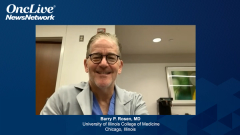
An Overview of Minimal Residual Disease (MRD) Testing
Expert oncologist Aditya Bardia, MD, MPH, provides a broad overview of minimal residual disease testing across a number of tumor types and clinical settings.
Episodes in this series

Transcript:
Aditya Bardia, MD, MPH: MRD refers to minimal residual disease. It is a term that’s often used in solid tumors. In general, in solid tumors for patients with localized disease, the mainstay is surgery and systemic therapy, plus or minus radiation. Often, surgery is done first. A common question in the clinic after a patient has had surgery is, “Do I still have cancer?” Minimal residual disease essentially refers to, in a patient who’s had surgery, is there’s still evidence of disease that can be detected based on molecular tests, but cannot be detected by restaging CT [computed tomography] scans? Because if a patient has evidence of disease based on scans, that would technically be metastatic disease, or stage IV. Thus, it’s just this spectrum after surgery where you cannot detect anything on restaging scans, but there is still disease left that you can detect with sensitive molecular tests.
In terms of MRD tests and their use in the community versus academia, in general in breast cancer, we do not have a validated MRD test. Tumor markers are not really sensitive enough. There is interest from a research perspective to measure circulating tumor DNA [ctDNA] by different assays, but that’s not something that we routinely do in clinical practice, either in academia or in the community. It’s something that’s been investigated in research. In GI [gastrointestinal] cancers, there is interest in looking at circulating tumor DNA, and at least in some institutions, ctDNA-based tests are being utilized in the adjuvant setting. But outside of GI cancers in general, in other cancers like lung or breast, it’s in the research setting.
Transcript edited for clarity.






































